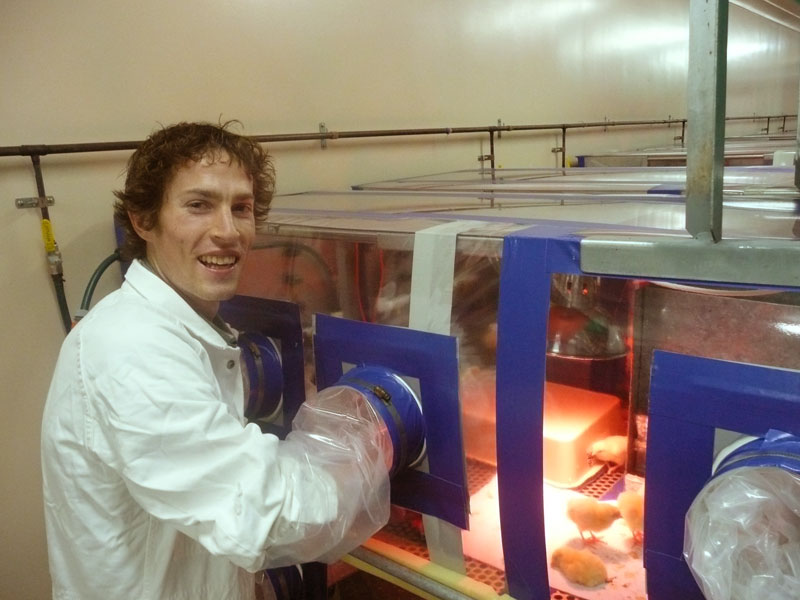There’s more kudos for Poultry CRC scientists at CSIRO Livestock Industries, with both a veteran and a newcomer winning accolades for their achievements.
Poultry CRC Program Manager, Dr John Lowenthal, was one of ten exceptional senior scientists to receive the 2009-10 Newton Turner Career Award.
The award, which was established in 2008, is designed to further the scientific careers of exceptional senior scientists at CSIRO. The aim is to further develop and retain outstanding senior scientists with a view to enhancing science quality and to reinforce a culture of scientific excellence.
John Lowenthal has been the Poultry CRC’s Program Manager for Poultry Health since the CRC’s inception in 2003, and will take on the role of Program Manager for Health and Welfare in the new Poultry CRC from 2010. John joined CSIRO in 1990, and established a new research team to develop cytokines as novel therapeutics to fight poultry diseases. John’s team subsequently developed a therapeutic, that is now undergoing commercialisation, which saw the team win a CSIRO Medal in 2002.
As a CSIRO Stream Leader, John currently leads a portfolio of projects designed to reduce the severity of animal disease outbreaks. John will use the Newton Turner Award to visit world leading poultry and salmon breeding companies in the United Kingdom and Norway, to learn more about the problems faced by these industries in order to develop innovative solutions for disease control.
David Cummins, a Poultry CRC Post-doctoral Fellow with Livestock Industries at the Australian Animal Health Laboratory (AAHL), won the CSIRO AAHL Animal Health Award for his contribution towards solving the long standing mystery on what determines sex development in chickens.
This research was accepted and published online in the prestigious journal Nature earlier this month.
University of Melbourne researchers originally discovered the DMRT1 gene a decade ago and proposed its role in sex determination of birds.
More recently, researchers at the Murdoch Children’s Research Institute in collaboration with researchers at Livestock Industries, formally showed that knockdown of the DMRT1 gene in gonads of genetic male chickens results in the development of chickens displaying female gonad phenotype.
“The aim of the collaborative investigation was to determine if knockdown of DMRT1 in ovo (in the chicken egg), using RNA interference technology, could in fact induce the selective development of a female gonad phenotype”, David said.
“Through this research we have shown that there is potential to generate only female chickens through knocking down this gene – DMRT1.”
David plans to use the $5000 award money to fund his attendance at an international conference next year to present the research findings.


